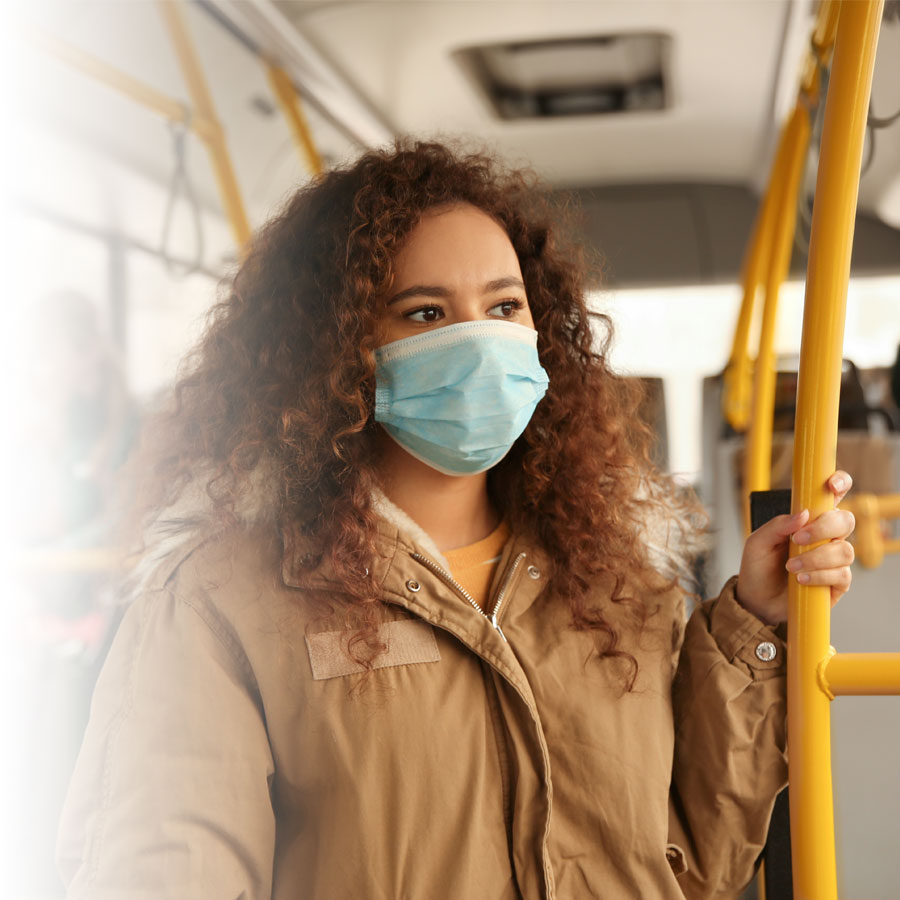Wearing a face mask or face covering helps minimize the risk of spreading many contagious respiratory diseases. Learn how you can protect yourself effectively.
AN ACTION TO LIMIT THE SPREAD OF INFECTION
Adequate handwashing, coughing or sneezing in the crook of the arm, avoiding touching the face, and practising physical distancing are some of the well-known measures to limit the spread of respiratory infections. All these measures are essential and figure predominantly in our routine, which is reassuring!
Respiratory infections mainly spread through contact with droplets from respiratory secretions. For example, when you are close to an infected person, droplets released into the air when they cough or sneeze can reach your face or hands. It can also be caught by touching contaminated surfaces or objects. The rationale for wearing a face covering is to prevent droplet projection. It is also the reason why so much emphasis is placed on the importance of keeping a two-metre physical distance.
Protecting yourself and others
Anyone with symptoms of respiratory illness, such as a cough, sore throat or nasal congestion, should wear a mask during social interactions. This simple measure is intended to protect the health of those with whom you interact. It is particularly important to keep wearing a mask around vulnerable people, such as those with a weakened immune system, people aged 60 or over, pregnant women or infants under three months of age.
Additionally, to reinforce their own protection, it is recommended that vulnerable people wear a mask when they are in contact with symptomatic individuals, or when they are in crowded public places.
WHAT TYPE OF MASK SHOULD I CHOOSE?
Several types of masks are available to prevent the spread of respiratory infections. Various factors can influence the effectiveness of a mask.
N95 masks are generally used by healthcare providers. A snug fit to the face (also known as a "fit test") is essential to optimize effectiveness.
Procedural masks, also known as medical masks, have also proved effective in preventing respiratory infections. They must fit snugly to cover the nose and mouth.
It is also possible to wear a cloth face covering in the community to reduce the risk of spreading infection.
HOW DO I OPTIMALLY WEAR A FACE MASK?
Here are a few additional tips to help you wear your mask more effectively.
- Wash your hands before and after putting on your mask.
- Make sure it always covers your nose and mouth. It should also cover a large part of your cheeks and the underside of your chin. It should fit snugly to your face, with no gaps between the skin and the fabric, otherwise there's no point in wearing it.
- Avoid touching it or any uncovered areas of your face (such as your eyes).
- Change it if it gets dirty, damp or damaged.
- Never share it with another person.
Speak to your pharmacist for additional information about the prevention of infections.

